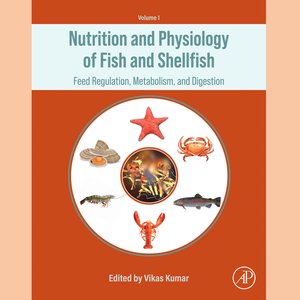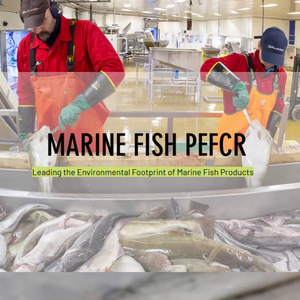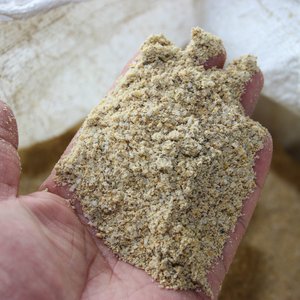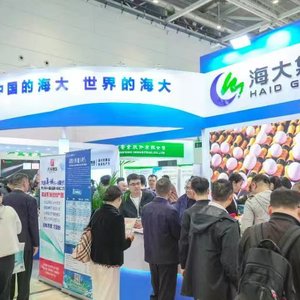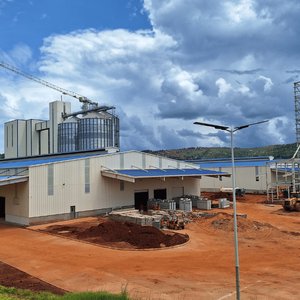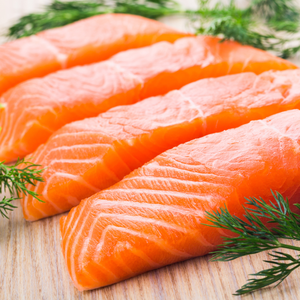Destruction of our Planet’s Fisheries (or How We Ate Our Way Into Trouble)
Our living seas are dwindling due to overfishing, pollution and coastal effects. People, through their seafood consumption activities, can make a significant impact on the future viability of our oceans. Governmental and non-governmental organizations ranging from fishermen to public aquariums to lawmakers and industry have banded together to engage the world populations to make a difference through their actions toward the oceans.
Introduction
Although it’s been said that we know more about outerspace than our oceans, we do know that this great body of water, covering 70% of the earth, holds deep secrets to our very existence. Protecting this life-sustaining resource is critical to the survival of the human race and all other life on this planet.
Oceans At Risk
Yet our oceans are on the verge of permanent cessation. Fertilizers from the land laden with nitrates have created 71 definable dead zones some as big as many US states. Poly vinyl chlorides are being absorbed from pipes and plastic discards, and now are a new feature in measurable levels of contaminants in our water but also in the meat of our fish. This accumulation along with mercury, cadmium and pesticides move from one species to the next up and down the food chain. Our air is polluted and being washed into the aquatic systems with acid rain, heavy metals, and soot. We are contaminating our own food source. Coastal development along with farming processes bring more silt, clogging our waterways which in turn choke corals, cover vital algae and kills microorganisms which are at the base of the food chain which supplies the nutrients to support biodiversity and indeed our fisheries which we depend on to feed the world. With the continuation of current practices it will only be a matter of a few years before we have completely depleted the oceans of all viable resources. Research shows that in just the past 15 years of industrial fishing we have depleted nearly 90% of our ocean’s large predatory fish. Habitat destruction, caused by a number of industrial fishing methods, has also contributed significantly to this end.
Fishing Out the Oasis
We have in less than a lifespan of a human scarred the earth and made barren our oceans. Without the knowledge of the disastrous position we are at in regards to our oceans we have lulled our public in believing everything is OK. Just in the same way as fishermen catch less and less fish that survival enthusiasm has blurred and dulled our vision of the true risks that are beneath the sea. Seamounts, outside of most traditional boundary waters, have become the new fishing grounds. Ten years ago the seamounts were thought to be savior oases of biodiversity, in the past scant ten years these have been wiped out by harvesters that scrape the whole under mountain sometimes up to five times as year. It is a wonder that anything lives there anymore!
Tsumani Effects
An example of the consequences for our population’s abuse of our oceans can be clearly seen by scientists researching the effects of the recent Tsunami which hit
Action Needed Now
These facts are devastating yet, through education and immediate action it is still possible to turn this fatal situation around in just a few decades. It is imperative that the general population become aware of this risk of total ocean devastation and that they take action now. If the human population takes responsibility for the seafood we eat, and works for legislation to halt the continuous contamination and habitat destruction, the plight to save our oceans will be successful. Yet, time is of the essence.
Sustainable Fisheries
The World Ocean Network's Sensible Seafood Campaign (see Executive Summary below) has been empowered to explore ways in which organizations, governmental entities, corporations, and others can effectively communicate, instruct, and educate people about the fragile nature of our world's oceans. The ultimate goal is to engage people to pollute less, support wise political practices in conservation, and engage the next generation in attitudinal readiness. The non-profit organization has outlined specific ideals for accomplishment in the next several years. Goals include encouraging better practices in fisheries, increased individual actions to reduce pollution levels and other environmental damaging activities, and the implementation of environmental changes through economically and environmentally sustainable practices.
Aquariums Unite
At the recent 6th International Aquarium Congress issues of the devastation of the world’s oceans came to a forefront. Faced with the fact that over 90% of the earth’s fishery stocks have been depleted in the past century and an additional 90% of what is left will be gone within the next ten years unless we do something about it, public aquariums stand in a key role to reverse the tragedy of the oceans. These institutions, which have previously displayed the beauties and bounties of the aquatic world, now are switching to connect the public to research, comment and legislation for the plight of our oceans. New laws have been put into place to better inform the public about the devastation of the oceans armed with knowledge that the visitors can go home and do something. Public aquariums can also instruct the visitors how to make wise decisions and by creating value to certain fishery items that are less polluting, less harmful to biodiversity of the ocean and to promote laws and practices that help to preserve these next generation. Public Aquariums are working together across the planet in an organization called the World Ocean Network (WON) to coordinate this awareness through public displays, educational materials, an annual Ocean Day (June 8), and choosing actions that can create a concrete change toward conserving our ocean resources. The Sensible Seafood Campaign was devised by surveying members of the Concrete Actions Committee which are made up of over 25 organizations from all over the globe delineated in the following Geographic Coordination Zones:
Zone 1: Europe including
Zone 2: Caspian Sea countries including
Zone 3:
Zone 4:
Zone 5: South Asia:
Zone 6: Southeast Asia:
Zone 7: Africa and the
Zone 8: Asia:
2005 – Year of the Sensible Seafood Campaign
December, 2004:
-At the 6th International Aquarium Congress, a majority of the aquariums represented showed interest in supporting the World Ocean Network in its actions. In three sessions where sustainable seafood was a major topic, all attendees resonated. After the meeting, a significant number of new aquariums have joined the World Ocean Network in support of the Sensible Seafood Campaign and other concrete actions.
January 18-20, 2005:
A regional coordinated meeting (RCM *) was called in
April 8-10, 2005:
This will be the Europe, Africa,
May 9 - 13, 2005:
The World Aquaculture 2005 meeting will be held at the
SUSTAINABLE SEAFOOD & PUBLIC AWARENESS
Tuesday, May 10, 14:40-17:30,
Chair: Leonard Sonnenschein
14:40 Leonard Sonnenschein
SENSIBLE SEAFOOD CAMPAIGN OVERVIEW
15:00
THE RIPPLE EFFECT OF FISHERY PRACTICES
15:20 Ram Boojh
TAKING PERSONAL RESPONSIBILITY FOR OCEAN HEALTH: THE
15:40 Leonard Sonnenschein
PROMOTION OF ORGANIC METHODOLOGY AND ALTERNATIVE LOW FOOD CHAIN SPECIES FOR AQUACULTURE PRODUCTION – SPECIES SELECTION AND REARING TECHNOLOGIES
16:00 Anthony Leong
INNOVATION IN AQUACULTURE TOWARD SUSTAINABLE, SAFE AND IMPROVED PRODUCTION - FEED, FISH AND TREATMENT TECHNOLOGIES
16:20 Seafood Watch Program representative*
PUBLIC AWARENESS AND CONSUMER RESPONSE - ACTIONS TOWARD COMPLIANCE
16:40 Ram Boojh
THE EFFECTS OF THE TSUNAMI ON FISH STOCKS: PLANNED INTERVENTION AND RECOVERY
17:00 Leonard Sonnenschein
NEXT STEPS – WORKING TOWARD A SUSTAINABLE FUTURE
Please note the * presentations are pending identification of speakers.
June 8:
As part of the World Ocean Network, the Concrete Field Actions Committee will unveil the Sensible Seafood Campaign to the world as part of an official United Nations Organization Day. Through several publications and unified action of hundreds of institutions world-wide, a call to individual actions of everyone will be made. We hope June 8, 2005 will be a date remembered for turning the course on preserving our oceans for the future.
September, 2005:
The 3rd International Fishers Forum in
-North America/South America RCMs are currently being planned for later meetings in 2005.
Success Projected for Ocean Actions
Due to the tremendous interest in the planned RCMs for 2005, we believe that success for the campaign in identifying issues using a multistakeholder, collaborative, two-day meeting structure will yield in gaining initial roundtable discussions in what is known and preparing for future efforts for sustainable fisheries. It is anticipated that in the second year, 2006, that tangible results from this initial sessions will ensue.
Plans for 2006
At the beginning of 2006, through practical actions such as creating sensible solutions for sustainable fisheries, environmental effects can be expected for saving our living oceans. In concert with UNESCO’s Global Conference on Oceans, Coasts and Islands,
--------------------------------------
Part I
Executive Summary
Sensible Fish Campaign: affecting a better consumptive practice on a regional basis.
The Concrete Conservation Field Actions Committee was established as part of the World Ocean Network (www.worldoceannetwork.org) to begin and motivate efforts toward making real changes to protect our World's Oceans. Since 2002, each year a topic of international concern has been chosen for members of the WON to adopt and adapt to their own information distribution. With several hundred million people as an audience WON has become a recognized effort by UNESCO. For 2005 and 2006 the Sensible Fish Campaign will officially launch June 8, 2005, (World Ocean Day) and has been chosen by a committee representing every continent of the world to combine a communication strategy between scientists, governmental policymakers, non-governmental organizations, consumers, producers, and distributors in regional coordinated meetings to identify, support and develop a way toward better fishery practices toward sustainable consumption and conservation activities. Herewith you will find the summary findings of the Sensible Seafood Campaign Committee from members meetings between August-November, 2004.
Here are the summary findings of the Sensible Seafood Campaign Committee, from members meetings between August – November 2004. The members are representative of Public Aquarium, Fishery Industry, Government and retailers from,
I. The defined need is to have Regional Coordination Meetings for the roll out of the Sensible Fish Campaign 2005-2006.
II. The message was defined as:
a) To encourage and empower consumers to be able to make sustainable choices when buying seafood.
b) To turn purchases and actions into positive environmental changes and greater financial motivation for other stakeholders levels
c) To promote consumption patterns that maintain healthy ecosystem
d) To eat fish that are not inherently vulnerable to overfishing
e) To eat fish from well-managed fisheries and fish farms
f) To promote the sharing responsibility in fishery management.
g) To Promote biodiversity in aquaculture – any fish consumed affects an ecosystem
III. This message could be delivered through the partners as further identified by each local effort (see 1. above):
a) The Consumer Level (with special attention to Families and Family dynamics)
b) Restaurants and Retailers
c) And, School Children.
IV. International campaign rollout to media and levels (3. above):
- Identified Campaign mascot
- Sensible Animated Cartoon series
- Website (with language translation choice, English, Chinese, French, Spanish, Russian)
- Regional Chapters Activities
- Documents download
- Educational Material
- Cartoons
- E-postcard
- Sensible Newsletter
- Forum
- And, related scientific support and policy documents will be produced.
Sensible Fish Campaign Layout – 2004 Pre-Campaign
The role of the Public Aquariums has risen contribution for the UNESCO Global Conference on Oceans, Coasts, and
Activities, which have taken place following the Conference in 2003 are the first efforts, out of the thematic areas addressed by the WSSD[1], to systematically asses WSSD implementation progress and prospects. Is especially important for the oceans, coasts, fisheries, and SIDS[2] community to organize its own periodic assessments of progress (see Regional Coordination Meetings) being achieved for, obstacles faced and developing strategies the Johannesburg Plan of Implementation and other related international oceans agreements.
Vision Statement
To create a wider awareness of the fragile state of the ocean ecosystems and what consumer actions can do to bring about a positive conservation change.
Goal and Objectives of Sensible Fishery Products Campaign:
Objectives – the objective of the Sensible Fish Campaign is to educate consumers on the issue of overfishing and empower them with actions they can take in the market place and/or restaurant.
The Campaign is articulated with Regional workshop and agendas focused on Regional/local issues.
Goals:
q To develop widespread Public Awareness Campaign that influence economic factors to promote sustainable fisheries practices.
q To encourage and empower consumers to be able to make sustainable choices when buying seafood.
q To turns purchases and actions into positive environmental changes and greater financial motivation for other stakeholders levels
q To promote consumption patterns that maintain healthy ecosystem
q To eat fish that are not inherently vulnerable to overfishing
q To eat fish from well-managed fisheries and fish farms
q To promote the sharing responsibility in fishery management.
q To Promote biodiversity in aquaculture – any fish consumed affects an ecosystem
q To Promote protection of Marine / Freshwater Environments
Social Actors of the Campaign
q Public Aquariums and Zoos
q Conservation Organizations
q Museums and Science Centers
q Farmers, industry and local government that impact on water quality in coastal areas
q Government – particularly local and national fishery regulators
Targets for campaign:
q C


